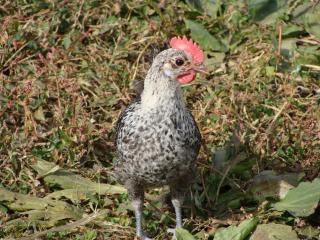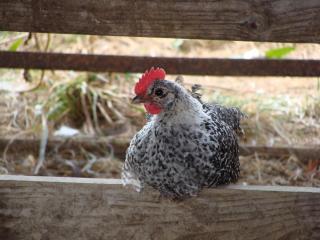Hi,
I'm new and this is my first day here. I have a delightful Golden Campine pullet, she is so sweet. Anybody else here love these special birds? Are there any breeders on here? Try as I might I cannot find any Campine breeders. Other than (shudders) a hatchery, which is where I got my Campine from, unfortunatlly. She is actually good quality, and got 2nd out of 20 for Continental class once. These birds are critically endangered, so anyone with extra room in the coop should try these guys out. They are great layers, good free rangers, friendly, good showers, and they are PRETTY! Campine's come in Silver and Gold.Please get a Campine!
Mama to-
2 Rhode Island Reds, 1 Silver Laced Wyandotte, 2 Silkies, 2 Modern Game Banties, 1 Black Sumatra, 1 Golden Campine, 1 Bearded Buff Laced Polish, and 1 Birchen OEG banty, 1 horse (soon to be 2) 3 cats, 1 dog, and several fish.
I'm new and this is my first day here. I have a delightful Golden Campine pullet, she is so sweet. Anybody else here love these special birds? Are there any breeders on here? Try as I might I cannot find any Campine breeders. Other than (shudders) a hatchery, which is where I got my Campine from, unfortunatlly. She is actually good quality, and got 2nd out of 20 for Continental class once. These birds are critically endangered, so anyone with extra room in the coop should try these guys out. They are great layers, good free rangers, friendly, good showers, and they are PRETTY! Campine's come in Silver and Gold.Please get a Campine!
Mama to-
2 Rhode Island Reds, 1 Silver Laced Wyandotte, 2 Silkies, 2 Modern Game Banties, 1 Black Sumatra, 1 Golden Campine, 1 Bearded Buff Laced Polish, and 1 Birchen OEG banty, 1 horse (soon to be 2) 3 cats, 1 dog, and several fish.




